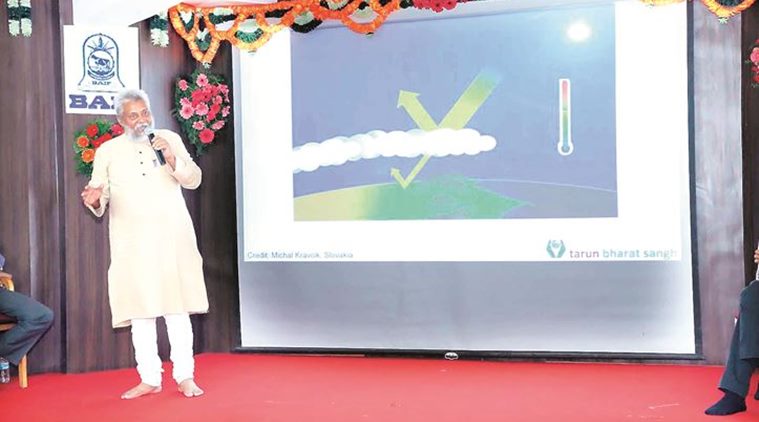
Rajendra Singh, also known as the ‘Waterman of India’, called for holistic development of watershed to mitigate the problem of drought in the country. Singh was speaking at the 52nd foundation day celebrations of the Pune-headquartered BAIF Development Research Foundation (BDRF).
Criticising the Pradhan Mantri Krishi Sinchayee Yojana (PMKSY), he said the scheme was “contractor-driven and corporate-driven”. “Pradhan Mantri Krishi Sinchayee Yojana does not allow community-driven programmes, which is not good as that makes it corporate and contractor driven,” he said.
Singh, who was awarded the Stockholm Water Prize (often called the Water Nobel) in 2015, called for integrated watershed development, which will take into consideration local conditions. He said the education system did not take into consideration the science of geohydrology, which focuses on water conservation in watersheds.
Citing from his own experiences in Rajasthan, Singh called for an increase in canopy cover to reduce evaporation. He added that the challenge for water conservation projects was to take into account climate change. Climate change, Singh said, was a major challenge to agriculture. He said earlier, Indian agriculture was linked to the rain pattern, which has now changed. Still, majority of agricultural acitvities are dependent on rain, which in turn, leads to major losses to farmers during a drought.
Singh narrated his experiments with water conservation, which besides watershed management, also highlight increasing canopy cover and reclaiming barren land. He said India required rejuvenation and nourishment. “Development brings disaster. Instead, we should emphasise on efficient water use,” he added.
Community-based river basin treatment, he said, held the key to better climate change adaptation. “Instead of politically administrative boundaries, we should recognise geo hydrological boundaries,” he said. Change in crop pattern was of paramount importance to adapt to the vagaries of climate change, Singh said.
The event also saw self-help groups and individual farmers being recognised for the work they have been doing.